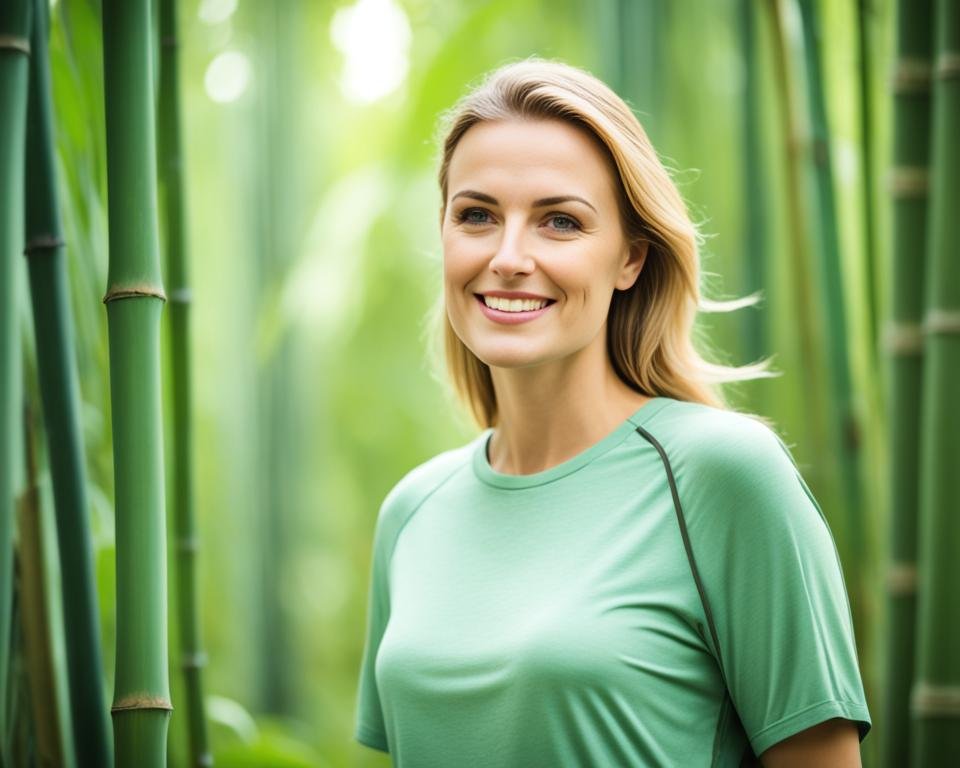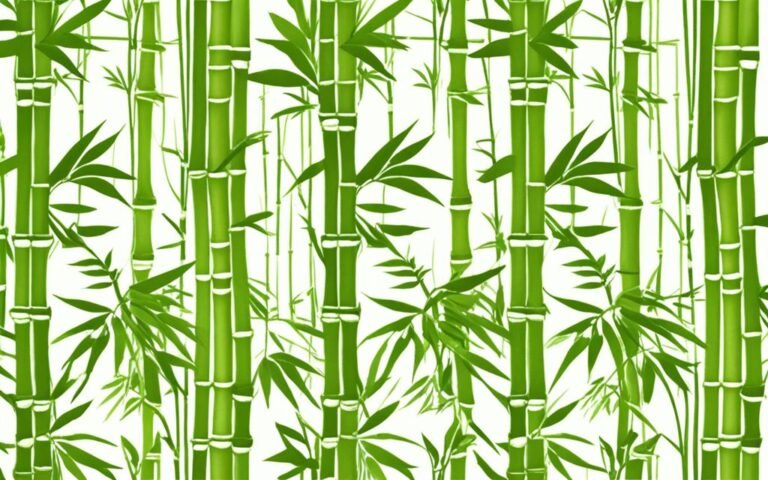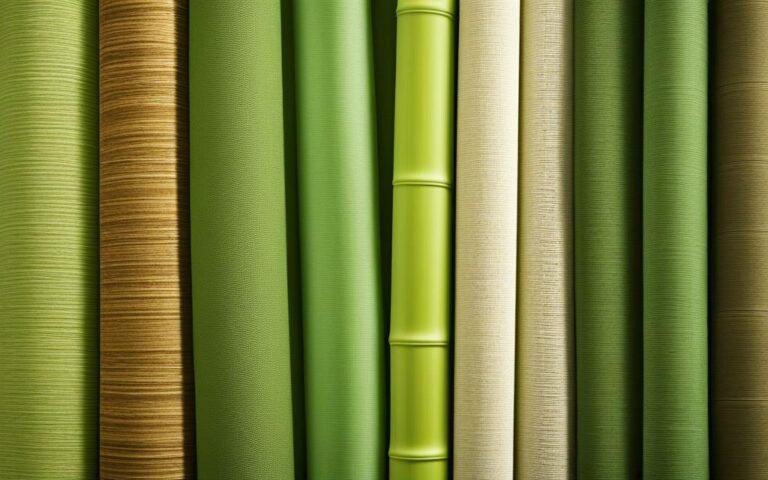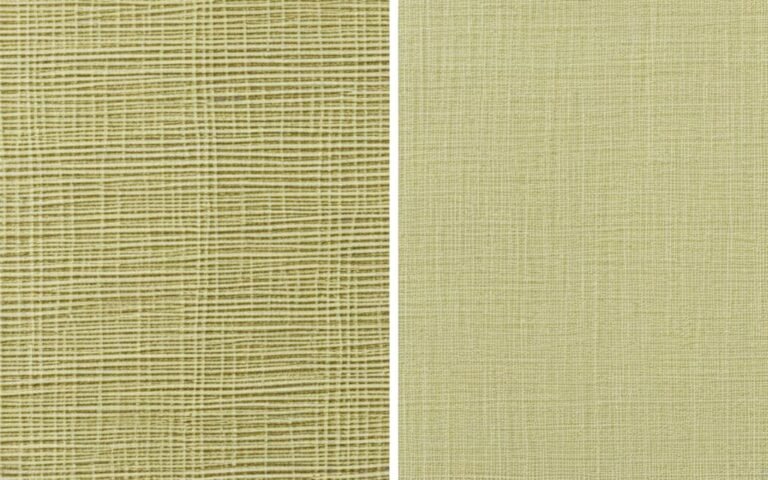Imagine wearing clothes that are super soft on your skin and at the same time care about the planet. This is what bamboo clothing offers. It’s all about combining cosiness with being kind to our world. But why pick bamboo clothes? They’re crafted from nature’s own clever ideas. This offers us clothes that are luxurious but also responsible.
Bamboo is leading the way in eco-friendly fashion. In addition to it’s amazing benefits to the wearer, it also needs much less water than usual crops and grows without harmful pesticides, plus, it grows back fast and is fully biodegradable, showing it’s truly renewable.
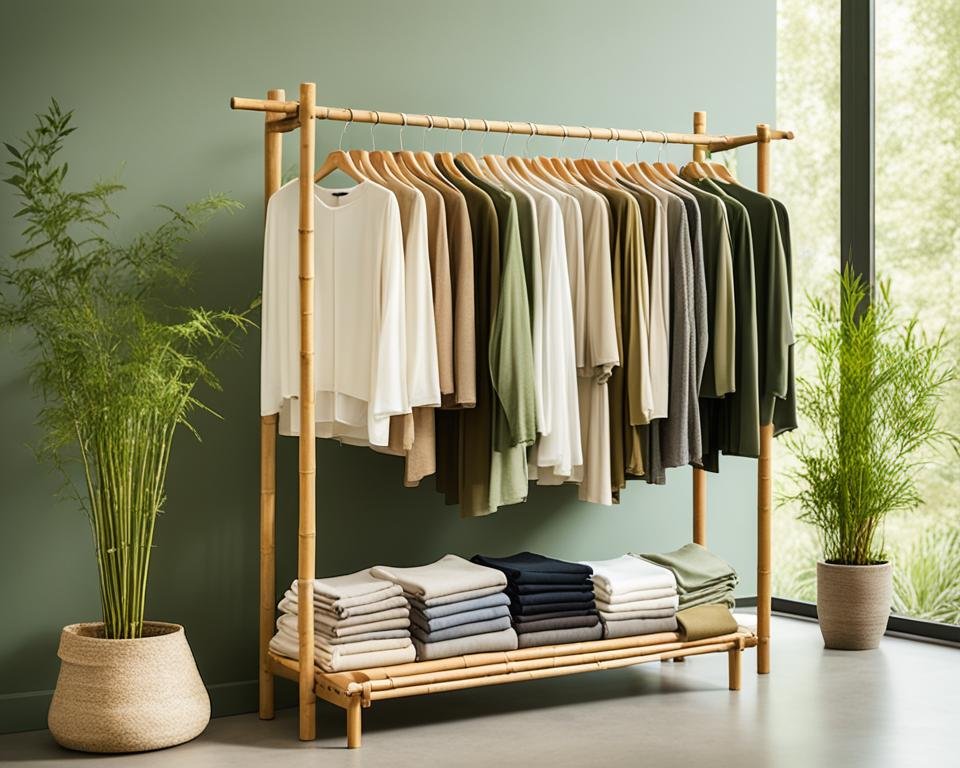
Key Takeaways
- Eco-Friendly Resource: Bamboo requires minimal water and no harmful pesticides, making it a highly sustainable material.
- Biodegradable: Bamboo fabrics break down naturally, reducing landfill waste and supporting soil health.
- Durability: Bamboo clothing is strong, long-lasting, and retains color better than many other fabrics.
- Comfort and Health: Naturally soft, hypoallergenic, and moisture-wicking, bamboo clothing is ideal for sensitive skin and keeps you comfortable in varying temperatures.
- UV Protection: Bamboo fabrics offer natural UV protection, safeguarding your skin from sun damage.
Why Bamboo Fabrics: They’re Eco-Friendly!
Bamboo fabrics are becoming very popular in the textile world. They are known for being eco-friendly fabric and have many bamboo apparel advantages. Designers and consumers alike are choosing bamboo because it’s sustainable both for you the wearer and the environment. Its fast growth and low impact on the environment make it important for renewable resources.
- It grows without harmful pesticides or fertilisers.
- Requires less water to grow than than other crops
- Bamboo can grow up to a metre each day, making it a super renewable material. This quick growth means there’s always enough bamboo.
- It also helps fight global warming by capturing carbon.
- It durable and fully biodegradable leading to less or no waste
People have used bamboo for many years, especially in Asia, for its durability and flexibility, and now, as we search for a more sustainable World bamboo fibres have become even more valuable.
Less Water, More Output
Bamboo needs far less water than typical fabrics like cotton. It grows well on rainwater alone, no irrigation needed. This makes bamboo a leading solution for sustainable fashion, considering our planet’s shrinking water supplies.
Bamboo forests account for 1% of all the Worlds forests and have they’ve grown by 3% in the last 3 years so there is plenty of bamboo in the World and it’s growing.
Biodegradability
Bamboo’s natural ability to break down is a key feature. When its life as a garment ends, it can decompose and enrich the soil, instead of adding to landfill pollution. Thus, bamboo wear minimises its immediate environmental effects and supports long-term waste reduction efforts.
Durability and Longevity
Bamboo fabric is a standout when we talk about clothing’s durability. Its longevity means it doesn’t wrinkle or fade easily. This keeps your clothes looking good and strong for longer. Less need for new clothes means you save money and help the planet.
Bamboo clothing supports sustainable living. It helps reduce clothing waste. So, buying bamboo clothes is good for both your wardrobe and the Earth.
- Natural fibre strength: Bamboo fibres are inherently strong, which translates into greater durability in the finished products.
- Resistance to wear and tear: Fabrics made from bamboo show a higher resistance to tearing and stretching compared to other natural fibres.
- Colour retention: Bamboo clothing tends to hold dye colours better, preventing the usual fading that occurs with washing and regular use.
Choosing longevity of bamboo clothing is wise for your wardrobe. It also helps the environment by reducing the need for new clothes.
The Carbon Footprint of Clothing
When you think about sustainable fashion, bamboo is leading the way. It has a low environmental impact. It also has a small carbon footprint of clothing.
Let’s compare the carbon footprint of clothing from bamboo and cotton. Here’s a quick view:
| Material | Annual Carbon Emissions (Tonnes CO2) | Energy Consumption (MJ/kg) |
|---|---|---|
| Bamboo | 0.3 | 10 |
| Cotton | 2.1 | 55 |
Bamboo makes fashion more sustainable. It greatly lowers the carbon footprint of clothing.
Environmental Impact: Bamboo vs Cotton
Bamboo’s eco-friendly benefits stand out when compared to traditional fabrics like cotton.
Bamboo grows incredibly fast, up to a meter a day, and requires no pesticides or intensive irrigation, thriving on natural rainfall. It captures more carbon, is fully biodegradable, and provides a higher yield with a smaller environmental footprint.
Bamboo also boasts lower annual carbon emissions (0.3 tonnes of CO2) and energy consumption (10 MJ/kg) compared to cotton’s 2.1 tonnes of CO2 and 55 MJ/kg.
These qualities make bamboo a superior, sustainable choice for environmentally conscious consumers.
Summary of bamboo’s amazing eco-friendly qualities compared to traditional fabrics:
| Feature | Bamboo | Traditional Fabrics (like cotton) |
|---|---|---|
| Growth Speed | Up to 1 metre/day | Varies significantly |
| Pesticide Use | None | Often required |
| Water Usage | Low (Thrives on natural rainfall) | High (Requires intensive irrigation) |
| Carbon Sequestration | High | Low to moderate |
| Biodegradability | Fully biodegradable | Biodegradable (chemical treatments may affect rate) |
| Yield per hectare | High yield with minimal environmental footprint | Lower yield with higher environmental footprint |
| Annual Carbon Emissions (Tonnes CO2) | 0.3 | 2.1 |
| Energy Consumption (MJ/kg) | 10 | 55 |
| Eco-Friendliness | Very high | Moderate to low |
Why Bamboo Clothing: Luxurious Softness and Comfort
Bamboo clothing is a blend of softness and comfort that’s hard to beat. It feels luxurious and follows ethical fashion rules. So, it’s perfect for anyone wanting to stay comfy without hurting the planet.
Its smoothness can outshine even the fanciest fibres. It’s great for wearing every day and for people with delicate skin.
The Soft Nature of Bamboo Apparel
Bamboo’s softness and comfort come from its naturally round fibres. They are super gentle, causing no irritation. These fibres feel like a mix of cashmere and silk. This makes bamboo clothes stand out in sustainable fashion.
Organic Bamboo Clothing and Skin-Friendliness
Organic bamboo clothing is good for the planet and your skin. It helps avoid allergies and fights off bacteria with it’s natural anti-bacterial properties. So, it’s excellent for those with sensitive skin or those who are eco-conscious.
Bamboo clothing is not just soft, but also comfortable. It’s perfect for those who prioritize eco-friendliness and comfort. Plus, it’s hypoallergenic, suitable for sensitive skin without causing irritation.
Breathable Bamboo Textiles: Keeping You Cool Naturally
Try the softness of breathable bamboo textiles. They’re not just comfy. They also support a green lifestyle. Their moisture-wicking properties cool you down naturally. This is ideal for the ever-changing British weather, with its sudden sunny days and usual damp mornings.
Picture wearing clothes that adjust to your body, helping you feel just right. Bamboo textiles do this. They let air flow well because of their special structure. This makes you feel comfortable all the time. For anyone who gets bothered by changes in temperature and dampness, this is a great solution.
“Bamboo clothing feels like a breath of fresh air. It’s soft, deals well with sweat and heat, making you comfortable in more ways than one.”
Here’s a simple look at what these features mean for you day-to-day:
- Breathability: Stops you from getting too hot by letting your skin breathe.
- Moisture-wicking: Pulls sweat away, keeping you dry and comfy.
- Thermo-regulating: Keeps you cosy in cold and cool in the heat.
Bamboo textiles aren’t just for wearing; they’re great for everything. From sportswear to snuggly bed sheets. Plus, they protect you from the sun naturally. This makes them perfect for clothes you wear outdoors.
| Bamboo Textile Features | Benefits |
|---|---|
| Natural Fibre | Eco-friendly, sustainable |
| Breathable Weave | Makes air move better |
| Moisture-wicking | Makes you stay dry and feels nice |
| UV Protection | Blocks some sun naturally |
Bamboo Clothing vs Cotton: The Comfort Comparison
Looking at sustainable and comfy fashion, many compare bamboo against cotton. This highlights key differences, like how they manage temperature and moisture.
A Battle of Fibres: Sustainability vs. Tradition
Bamboo fibre shines with its sustainable features. It grows quickly and needs fewer resources than cotton, which uses lots of water and pesticides. This makes bamboo not just good for the planet but also comfortable in a unique way.
Temperature Regulation and Absorbency Factors
Bamboo keeps a more constant temperature, fitting for different climates. It also wicks away moisture better than cotton, keeping you dry and more at ease.
| Feature | Bamboo Clothing | Cotton Clothing |
|---|---|---|
| Temperature Regulation | Excellent | Average |
| Moisture-Wicking | High | Low to Moderate |
| Environmental Impact | Low | High |
| Resource Efficiency | High (less water, no pesticides) | Low (high water, pesticides) |
The Advantages of Bamboo Clothing
Bamboo clothing brings you many benefits that boost your comfort and wellbeing. This natural material isn’t just soft. It’s packed with features that look after your health and the planet too.
Bamboo’s Natural Resistance to Bacteria and Odor
One top advantage of bamboo clothing is its natural anti-bacterial quality. Thanks to this, bamboo clothes are less likely to hold onto odors, so they stay fresh longer. Whether you’re working out or out and about all day, you’ll smell fresh and feel great in bamboo clothes.
The Hypoallergic Nature of Bamboo Fabrics
For those with sensitive skin, bamboo is a dream. Its fibres are smooth and round naturally, without needing chemicals. So, it’s less likely to bug your skin. Bamboo’s gentle touch significantly cuts down irritation risks, keeping your skin happy.
UV Protection
Bamazingly, bamboo clothing also zones out UV rays, protecting your skin from the sun’s harm. Bamboo’s natural fibres add a layer of defence, pairing well with sunscreen. It’s perfect for sunny days or anytime you’re outside for a while.
Softness & Comfort
The pure softness of bamboo fabric is why it’s so loved. It’s smooth, luxurious, and feels amazing. Bamboo is ideal for clothes you wear right next to your skin, like undies and base layers.
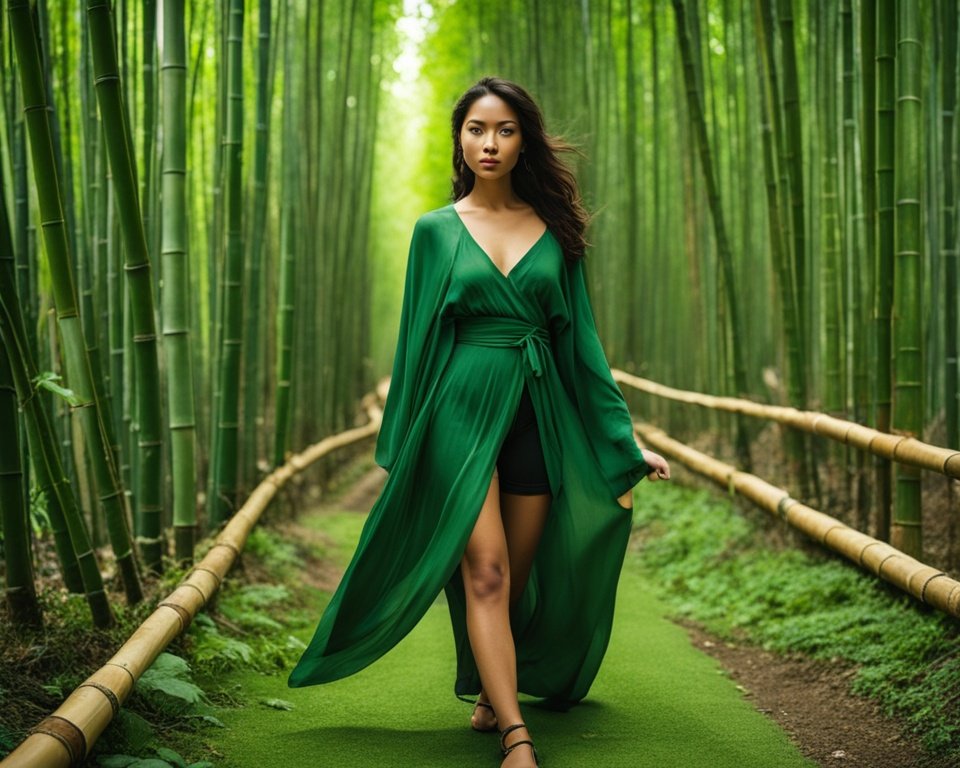
| Feature | Benefits |
|---|---|
| Natural Anti-Bacterial | Reduces odors, stays fresher longer |
| UV Protection | Protects skin from harmful UV rays |
| Hypoallergenic | Minimizes risk of irritation and allergies |
| Softness | Enhances comfort with luxurious texture |
Conclusion
Bamboo clothing advantages are many and impressive. This makes it a top pick for those wanting to make eco-friendly fashion choices. Its softness offers unmatched comfort, and its sustainable production marks a step towards environmental care. Bamboo clothing is not just clothes; it’s a pledge to protect our planet.
The growth and decay process of bamboo make it stand out as a green choice in fashion. Plus, bamboo’s hypoallergenic properties and UV protection are great for your health and the earth.
Embracing bamboo in your wardrobe and home is a big step towards a sustainable future together.
FAQ
Why should I consider bamboo clothing as a sustainable clothing option?
Bamboo clothing is a good choice for the planet. It grows fast with little water, and it’s easy to break down naturally. This makes it a top eco-friendly option in fashion.
What has led to the phenomenal growth of bamboo fabrics?
Bamboo fabrics have grown popular for many reasons. They’re eco-friendly, grow back quickly, and have been used in various ways historically. People looking for sustainable options are drawn to bamboo.
How does bamboo usage as a resource lead to sustainable clothing options?
Bamboo needs less water than other plants but yields more. Its ability to break down helps the environment too. Making clothes from bamboo is a step towards a sustainable future.
What environmental advantages does bamboo fabric have?
Bamboo fabric is great for the planet. It grows fast without harmful chemicals and needs less water. Its growth supports our urgent need for more sustainable fashion practices.
How does the luxurious softness of bamboo apparel meet eco-friendly practices?
Bamboo clothing feels lovely and soft. It’s also made in a way that’s better for the Earth. This mix of comfort and green production is what makes it special.
In what way is bamboo apparel leading the green fashion movement?
Bamboo clothing stands out in sustainable fashion. Its softness, hypoallergenic quality, and ability to keep moisture away make it a top choice for eco-friendly clothes.
Why are bamboo textiles considered breathable, and how do they help maintain body temperature?
Bamboo fabrics let your skin breathe and wick away sweat. This helps you stay cool when it’s hot and warm when it’s not. It’s great for keeping a comfortable temperature.
Can you compare the comfort level of bamboo clothing with cotton?
Bamboo clothing beats cotton in many ways. It’s better at controlling temperature, absorbing moisture, and keeping you dry. That makes it comfortable for all sorts of weather and activities.
What ethical considerations come with choosing bamboo clothing?
Choosing bamboo clothing is a responsible choice. It’s made with fewer pesticides and water, helping to keep our environment balanced and healthy.
What are some key advantages of bamboo clothing?
Bamboo clothing has many benefits. It fights bacteria and smells, is kind to the skin, protects against the sun, and feels incredibly soft. This makes it a great choice for clothing.
How does bamboo redefine sustainability in the fashion industry?
Bamboo fabric leads in sustainability. It reduces carbon footprints, needs less energy to grow, and its environmental impact is low. It’s changing the fashion industry for the better.
What makes bamboo clothing durable and a representation of longevity?
Bamboo clothing lasts long. It resists creases and fading well. This durability and long life mean less waste, aligning with sustainable living practices.
Why is bamboo clothing seen as the future of fashion?
Bamboo clothing is the future of fashion. It’s not just eco-friendly; it’s also stylish, comfortable, and versatile. This mix of benefits shows it’s a forward-thinking choice in clothing.

